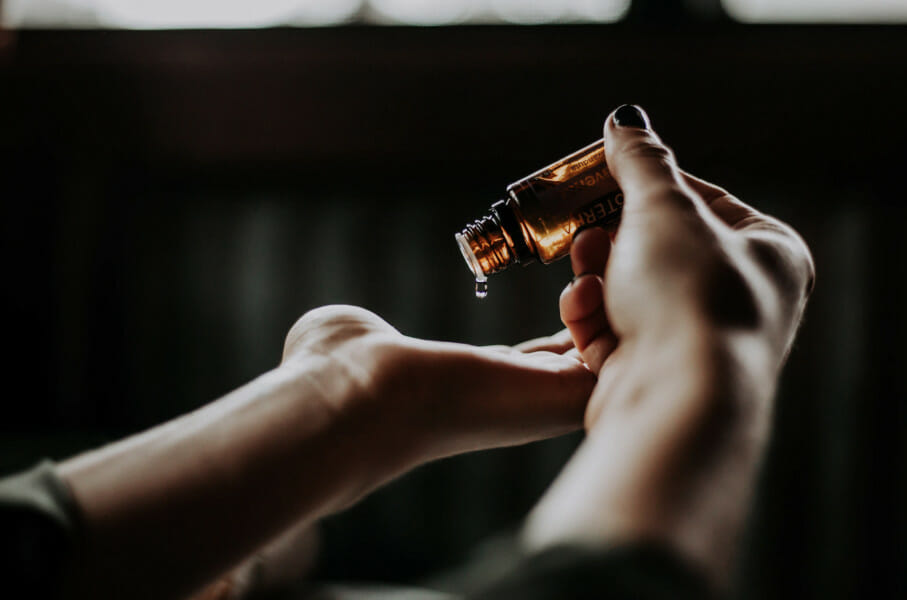These Are The Top 10 Essential Oils For Skin
Essential oils are not only known for their pleasant scents, but they also have benefits for the skin. The use of essential oils for skin care has become popular, with millions of views on TikTok. However, it is important to note that essential oils are highly concentrated and can cause irritation when applied directly to the skin.
According to dermatologist Sonia Badreshia-Bansal, essential oils are concentrated plant extracts that contain aromatic compounds and active constituents. When applied to the skin, essential oils can be absorbed into the bloodstream, provide localized benefits, or be inhaled for aromatherapy purposes. In this article, we will focus on the topical use of essential oils for skin benefits.
How do essential oils work on skin?
Essential oils interact with the body through three primary mechanisms when applied to the skin:
1. Absorption
Essential oils can be absorbed through the skin and enter the bloodstream, allowing their beneficial compounds to circulate throughout the body.
2. Topical Application
When applied topically, essential oils can provide localized benefits such as soothing irritated skin, reducing inflammation, or providing antioxidants.
3. Aromatherapy
The aromatic molecules of essential oils can be inhaled, influencing mood and emotions through the limbic system in the brain.
For the purpose of this article, we will focus on the topical application of essential oils for skin benefits.
How to apply essential oils to skin
Before incorporating essential oils into your skin-care routine, it is important to dilute them in a carrier oil. This is because essential oils are highly concentrated and may cause skin irritation if applied directly.
Sonia Badreshia-Bansal recommends using a carrier oil to dilute essential oils and reduce the risk of skin irritation. Carrier oils not only prevent irritation but also help essential oils spread across the skin’s surface for better absorption. Common carrier oils include jojoba, coconut, sweet almond, and olive oil. It is advisable to add a carrier oil to your essential oil shopping list.
When diluting essential oils, the final mixture should contain no more than 1-3 percent of the potent essential oil in a carrier oil. This roughly translates to 12 drops of essential oil per ounce of carrier oil.
Precautions
While essential oils offer various skin benefits, it is important to be cautious when using them. Nearly all essential oils contain allergens and can cause allergic contact dermatitis. Some essential oils, such as citrus oils, can increase sensitivity to sunlight, leading to sunburn or skin pigmentation changes. Certain individuals with pre-existing botanical allergies may be triggered by essential oils. Additionally, some essential oils can interact with medications or medical conditions. It is advisable to perform a patch test before applying essential oils to a larger area of the skin and to consult a dermatologist or healthcare professional if you have specific health concerns, medical conditions, or are pregnant.
What to consider before buying
When shopping for essential oils, it is important to look for reputable brands that provide pure, unadulterated oils. It is preferable to choose oils that have been third-party tested for quality. Essential oils should be stored in dark, glass bottles to protect them from light and air exposure, which can degrade their quality. The label of the essential oil should include its botanical name to confirm its specific source. Avoid products labeled as “fragrance oil” or “perfume oil” as they are synthetic and do not provide the same benefits as true essential oils.
Best essential oils for skin
Best essential oil for sensitive skin: chamomile oil
Chamomile oil soothes and reduces inflammation, making it helpful for sensitive or irritated skin conditions like eczema or rosacea. It can be mixed with a carrier oil and applied as a calming facial treatment.
Best essential oil for dry skin: neroli oil
Neroli oil replenishes and locks in moisture, making it beneficial for dry or dehydrated skin. It can be mixed with a carrier oil and applied to the face, neck, and chest for a glowing skin effect.
Best essential oil for combination skin: ylang-ylang oil
Ylang-ylang oil balances sebum production, improves skin elasticity, and has a soothing effect. It can be mixed with a carrier oil and applied as a facial oil or added to a warm bath for a relaxing experience.
Best essential oil for irritated skin: lavender oil
Lavender oil calms and soothes irritated skin, possesses anti-inflammatory properties, and promotes wound healing. It is suitable for all skin types, particularly sensitive or irritated skin.
Best essential oil for oily skin: jojoba oil
Jojoba oil provides excellent moisturization, balances natural oil production, and is non-comedogenic. It can be used alone as a moisturizer for all skin types, especially oily or combination skin.
Best essential oil for acne-prone skin: tea tree oil
Tea tree oil has antimicrobial properties that can combat acne-causing bacteria and control excess oil production. It is beneficial for oily, acne-prone, and combination skin. Tea tree oil can be mixed with a carrier oil and applied as a spot treatment or incorporated into a gel cleanser.
Best essential oil for acne prevention: oregano essential oil
Oregano essential oil can help manage acne by killing acne-associated bacteria and preventing breakouts. It can be mixed with a carrier oil, cleanser, or moisturizer for effective results.
Best essential oil for aging skin: frankincense oil
Frankincense oil promotes skin cell regeneration, tightens and tones the skin, and reduces the appearance of fine lines and wrinkles. It is beneficial for mature skin and can be blended with a carrier oil for use as a facial serum or added to a moisturizer.
Best essential oil for hormonal skin: sage oil
Sage oil is hydrating and balancing, making it a great choice for hormonal skin. It is rich in vitamin A and calcium, which are essential for cell regeneration and collagen production. Sage oil also helps balance combination, oily, and acne-prone skin types.
Best essential oil for dandruff: rosemary oil
Rosemary oil can help improve skin hyperpigmentation and uneven skin tone. It also boosts blood circulation and oxygenation, resulting in a healthy glow. In addition, rosemary oil has benefits for the scalp, managing dandruff and scalp acne.

















